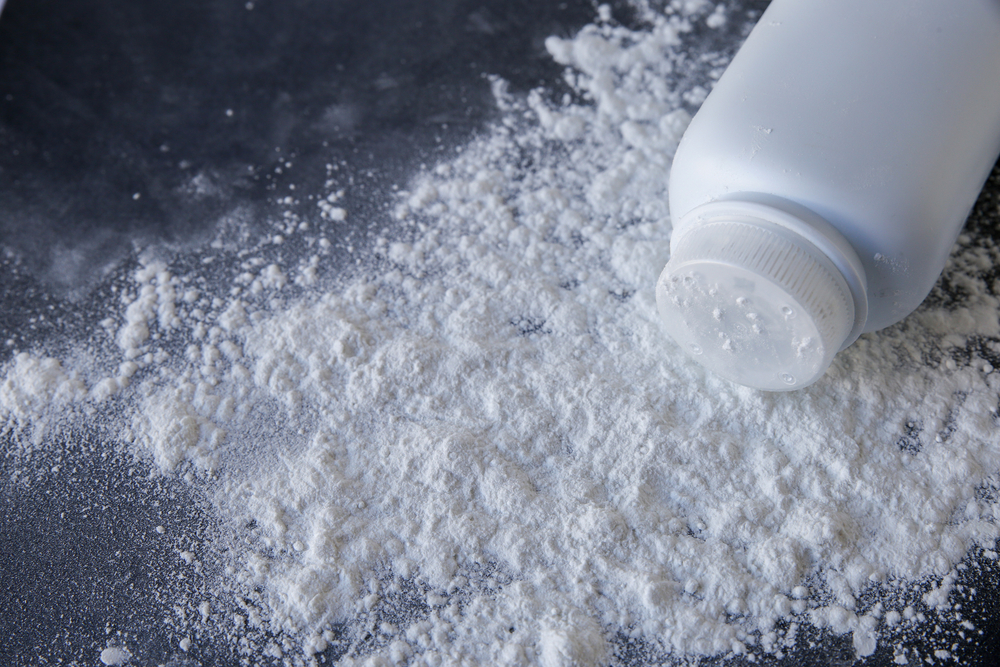Did You Develop Cancer After Using a Philips CPAP Machine?
Certain Philips Respironics ventilators, BiPAP and CPAP machines were recalled by the FDA due to the potential for the sound abatement foam inside the machines to degrade and enter the devices’ air pathway, which could cause users to swallow or inhale toxic gases and particles.

Start My Philips CPAP Claim Now
philips cpap Recall Lawsuits
Certain Philips Respironics ventilators, BiPAP and CPAP machines were recalled by the FDA due to the potential for the sound abatement foam inside the machines to degrade and enter the devices’ air pathway, which could cause users to swallow or inhale toxic gases and particles.
Due to an issue with potentially toxic sound abatement foam degrading and releasing debris and/or chemicals into patients’ airways, Philips Respironics was compelled to recall certain CPAP and BiPAP devices and mechanical ventilator machines in June 2021. The problem with the recalled devices has led to lawsuits claiming that the allegedly defective foam used inside the affected sleep apnea devices caused users to develop cancer, respiratory issues, and other serious side effects. If you or someone you love was diagnosed with cancer or another injury after using a now-recalled Philips Respironics ventilator, BiPAP or CPAP machine, do not hesitate to speak to an experienced product liability lawyer about the possibility of filing a legal claim against the manufacturer. Contact us today to find out how our consumer advocates can help.
What are the Recalled Phillips CPAP Machines Used For?
Under normal circumstances, a sleeping person breathes slowly and regularly, with air flowing smoothly from the mouth and nose into the lungs. In people with obstructive sleep apnea, however, their breathing repeatedly stops for brief periods of time during sleep due to the airway at the back of the throat becoming blocked. By delivering a stream of pressurized air that keeps the airways open during sleep, CPAP and BiPAP machines can help improve respiration and sleep quality in people with obstructive sleep apnea. Just like its name suggests, a continuous positive airway pressure (CPAP) machine delivers a continuous stream of air at a single pressure level. BiPAP, or bi-level positive airway pressure, machines work in a similar way, but they provide variable levels of pressure rather than just one level. Mechanical ventilators, on the other hand, are designed to provide patients who are unable to breathe normally on their own with high concentrations of oxygen delivered into the lungs, while ensuring that carbon dioxide is removed.
Possible Injuries Leading to a Philips Respironics Lawsuit
The issue with the recalled Philips CPAP machines is the polyester-based polyurethane (PE-PUR) sound abatement foam used to reduce sound and vibration in the affected devices. According to reports, the foam may break down over time and potentially enter the devices’ air pathway, which poses a health risk to users. A growing number of lawsuits have been filed by former users who have been diagnosed with cancer and other serious injuries after using the now-recalled sleep apnea devices. The plaintiffs in the Philips CPAP machine lawsuits claim that they have suffered serious or potentially life-threatening injuries as a result of inhaling harmful debris and gases from degraded sound abatement foam. According to the FDA, the potential health risks associated with exposure to particulate matter from the sound abatement foam include:
- Irritation to the skin, eyes, and respiratory tract,
- Inflammatory response,
- Headache,
- Asthma, and
- Toxic or carcinogenic (cancer-causing) effects to the liver, kidneys, and other organs.
Exposure to chemicals released from the PE-PUR foam may also increase the risk of the following injuries:
- Headache,
- Dizziness,
- Irritation in the eyes, nose, respiratory tract, and skin,
- Hypersensitivity,
- Nausea and vomiting, and
- Toxic and carcinogenic effects.
Link Between Philips CPAP Machines and Side Effects
The Philips Respironics CPAP recall was announced by the manufacturer on June 14, 2021, after it was discovered that the polyester-based polyurethane (PE-PUR) sound abatement foam used to decrease sound and vibration inside the machines could break down and potentially expose users to toxic foam particles or chemicals off-gassed from the foam. The FDA issued a safety communication on June 30, 2021, warning that the foam may:
- Degrade into particles that could enter the devices’ air pathway and be ingested or inhaled by users, or
- Release chemicals into the devices’ air pathway, which may be inhaled by users.
“These issues result in serious injury, which can be life-threatening, cause permanent impairment, and require medical intervention to prevent permanent damage,” the FDA warns. At the time of the recall announcement in June 2021, Philips Respironics had already received several complaints regarding the presence of black debris within the air pathway of affected devices and side effects like headache, cough, chest pressure, sinus infection, and upper airway irritation in users.
Philips recalled the CPAP machines in June 2021, but there is evidence that the company was aware of the issue at least several months and possibly even years before the recall was issued and did nothing to warn consumers or healthcare providers until recently. As one lawsuit states, “these ‘risks’ and certainty of degradation were known before any of the Recalled Breathing Machines were sold, because the properties of polyester polyurethane and likelihood of degradation in this application were known to the industry, were common knowledge to polymer experts and were readily available and known to Defendants before the machines went to market.” The Philips Respironics recall affects the following medical devices manufactured between 2009 and April 26, 2021:
CPAP and BiPAP Devices
Continuous Ventilator, Minimum Ventilatory Support, Facility Use
- E30 (Emergency Use Authorization)
- Continuous Ventilator, Non-life Supporting
- DreamStation ASV
- DreamStation ST, AVAPS
- SystemOne ASV4
- C-Series ASV
- C-Series S/T and AVAPS
- OmniLab Advanced+
Noncontinuous Ventilator
- SystemOne (Q-Series)
- DreamStation
- DreamStation Go
- Dorma 400
- Dorma 500
- REMstar SE Auto
Ventilator Devices
Continuous Ventilator
- Trilogy 100
- Trilogy 200
- Garbin Plus, Aeris, LifeVent
Continuous Ventilator, Minimum Ventilatory Support, Facility Use
- A-Series BiPAP Hybrid A30 (not marketed in US)
- A-Series BiPAP V30 Auto
Continuous Ventilator, Non-life Supporting
- A-Series BiPAP A40
- A-Series BiPAP A30
Lawsuits Against Philips for Cancer Side Effects
June 2021 – According to allegations raised in a class action lawsuit filed in Massachusetts, Philips has known about the problems with its sleep apnea devices for years but avoided disclosing these problems to the public until the company was ready to roll out the latest version of the machines.
July 2021 – A Florida man files a lawsuit against Philips, alleging that defective sound abatement foam used in the company’s CPAP machines caused him to develop lung cancer, damage to his respiratory system, cellular damage, and DNA damage.
July 2021 – In response to a motion filed by a plaintiff with the U.S. Judicial Panel on Multidistrict Litigation (JPML), Philips agrees to the centralization of all CPAP lawsuits in a federal multidistrict litigation (MDL).
July 2021 – A CPAP lawsuit is filed in the U.S. District Court for the Central District of California, seeking compensation from Philips for owners of the recalled CPAP and BiPAP machines and replacement of the affected devices with machines that do not suffer from the same foam degradation problems.
July 2021 – Two class action lawsuits are filed against Philips in the same month, both seeking reimbursement on behalf of consumers for the cost of replacing the company’s defective CPAP and BiPAP machines.
July 2021 – Yet another CPAP injury lawsuit alleges that Philips’ recalled DreamStation BiPAP device caused him to develop several serious lung problems, including bronchiectasis, early pulmonary fibrosis, and honey of the lungs.
Philips Respironics Machines and Regulatory Action
Why We Think Philips Should Be Held Liable for CPAP Machine Injuries
In the weeks after the massive Philips CPAP recall was announced, the company was faced with the first of what is expected to be thousands of class action claims and individual injury lawsuits filed by former users of the recalled sleep apnea machines. The plaintiffs in these lawsuits are seeking either reimbursement for the cost of replacing the allegedly defective machines or compensation for injuries like cancer, respiratory problems, or other major health issues. According to allegations raised in the lawsuits, Philips Respironics knew or should have known that the PE-PUR foam used in its CPAP, BiPAP and ventilator devices could break down over time and pose a health risk to users. The lawsuits currently pending against Philips in courts across the country accuse the company of the following:
- Defective design
- Failure to warn
- Negligent misrepresentation
- Fraudulent concealment
- Putting profits before patient safety
- Unfair, deceptive, and/or fraudulent business practices
- Breach of warranty
Related Topics

Start My Philips CPAP Lawsuit Claim Now

What should you do? If you have been diagnosed with cancer or another serious side effect, you should contact a lawyer as soon as possible to discuss filing a Philips Respironics lawsuit.
Start Your Claim Now!
Millions of Americans have been diagnosed with obstructive sleep apnea, and CPAP and BiPAP devices are considered the first line of treatment for obstructive sleep apnea in adults. Unfortunately, people who have used these machines to treat their sleep apnea may now be at risk for cancer, respiratory problems, and other serious, permanent, or potentially life-threatening health issues. If you or someone you know has suffered an injury related to the allegedly defective sound abatement foam used in Philips CPAP and BiPAP machines and mechanical ventilators, we can put you in touch with a product liability lawyer who can help you determine whether you are eligible to file an injury claim against Philips Respironics. Call us today to learn more about the Philips CPAP recall and what it may mean for you.
- Fight to Get The Compensation You Deserve
- Experienced Philips CPAP Attorneys Within Reach



